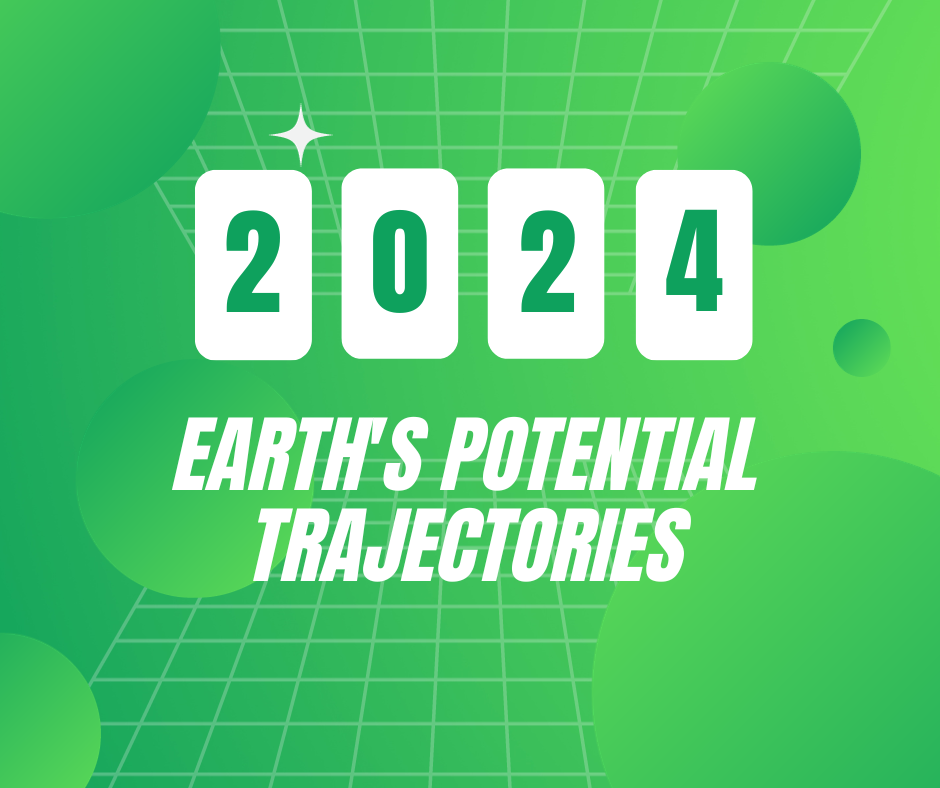Have you ever wondered what Earth might look like in a few years? A lot can change in a short amount of time, for better or worse. By 2024, new technologies like artificial intelligence, self-driving cars, and virtual reality will likely become an ingrained part of everyday life. Environmental challenges pose serious threats but also inspire promising solutions. You’ll probably be streaming ultra-high-def shows on devices we can only imagine right now. There may even be humans living and working on the moon and Mars, if space tourism and exploration continue accelerating at current rates. While the future remains uncertain, one thing’s for sure: Earth in 2024 will be a fascinating place to inhabit. Strap in for the ride of your life over the next few years. The 2020s are shaping up to be an exciting and pivotal decade.

Predictions for Earth in 2024: What the Experts Say
The future is hard to predict, but according to leading experts in various fields, here are some of the major events we can expect on Earth in 2024:
Climate change impacts intensify
As climate change accelerates, we’ll see more extreme weather events like heatwaves, droughts, wildfires and hurricanes. Sea levels will continue to rise, putting coastal cities at risk. Many plant and animal species will face threats to their survival. The effects of climate change are happening faster than predicted and 2024 could bring devastating consequences.
Technological breakthroughs
In just a few years, technologies like artificial intelligence, self-driving cars, and hyper-fast 5G networks will transform our lives. AI and automation may significantly impact jobs, both creating and eliminating many positions. Renewable energy like solar and wind will become cheaper and more widespread. And high-speed rail networks will connect more major cities, reducing travel times.
World population growth
The world’s population is projected to reach about 7.9 billion in 2024, straining natural resources and sustainability. Providing basic necessities like food, water, and shelter will be increasingly challenging, especially in developing countries. Overpopulation also contributes to many other environmental issues like pollution, deforestation, and loss of biodiversity.
Increase in global conflicts
There are concerns that conflicts over resources, ethnic and religious differences, and territorial disputes will escalate over the next few years. Cybercrime, hacking and online security threats are also expected to rise substantially. While global cooperation and diplomacy are critical to solving many of the issues facing our planet, there are fears that nationalism and isolationism will dominate the geopolitical landscape in 2024. The future remains uncertain, but these predictions from experts provide a glimpse of what may be in store for Earth in 2024.
Explore Our Live Planet Distance Calculator:
Will an Asteroid Hit Earth in 2024? Examining the Risks
Will an asteroid actually hit Earth in 2024? It’s unlikely, but space agencies are keeping an eye on near-Earth asteroids just in case.
Monitoring Near-Earth Asteroids
Space agencies like NASA track thousands of near-Earth asteroids (NEAs) and analyze their trajectories to determine the risk of impact. Currently, none of the known NEAs are projected to collide with Earth in 2024. However, there are likely many small asteroids that have yet to be discovered.
While the chances seem slim, it’s still a good idea for space agencies to monitor the situation. After all, the Tunguska event in 1908 and the Chelyabinsk meteor in 2013 remind us that impacts can happen without warning. By locating potentially hazardous asteroids, space agencies can determine if any countermeasures might be needed to redirect their paths.
The Impact Risk Scale
The Torino scale is used to rate the impact risk of near-Earth asteroids. It ranges from 0 (virtually no chance of collision) to 10 (collision is certain). According to this scale, there are no objects currently rated above 0 for impact in 2024. However, newly discovered asteroids could potentially increase the risk. Space agencies calculate impact probabilities for newly found NEAs to determine if they pose a threat and need to be monitored more closely.
While an asteroid impact in 2024 seems very unlikely, we should feel reassured that space agencies are actively scanning the skies and calculating risks to help keep Earth safe from cosmic collisions. Their work monitoring near-Earth asteroids and advancing impact prevention measures helps ensure that we have adequate warning for any potential future impacts.
Climate Change Impacts Expected by 2024
By 2024, our planet will unfortunately continue to experience the effects of climate change in various ways:
Rising Sea Levels
Sea levels have been rising over the past century and the rate of rise is accelerating due to climate change. Higher sea levels mean coastal flooding which leads to erosion and damage of properties. Low-lying coastal areas and islands are especially vulnerable to sea level rise. According to climate experts, sea levels may rise up to 6 inches by 2024 compared to levels in 2021.
More Extreme Weather Events
Climate change is causing an increase in extreme weather events like hurricanes, heatwaves, droughts, and wildfires. These extreme weather events are becoming more frequent and intense. For example, by 2024 we can expect more Category 4 and 5 hurricanes, longer and hotter heatwaves, worsening wildfires, especially in areas like the Western United States. Prolonged droughts may also lead to water shortages in some regions.
Melting Glaciers
Glaciers around the world have been rapidly melting due to rising temperatures. By 2024, glaciers in places like the Arctic, Antarctic, and mountain regions are expected to continue melting at an accelerated rate. For example, some glaciers in Glacier National Park may melt completely in the coming decades. Melting glaciers lead to loss of habitat for wildlife, changes in water supply, and sea level rise.
To summarize, in just 3 years from now, Earth may experience up to 6 inches of sea level rise, more frequent and extreme weather events, worsening wildfires, longer droughts, and accelerated melting of glaciers. While these climate change impacts can have devastating effects, the good news is we can all do our part to reduce greenhouse gas emissions and slow the rate of global warming. Together, we can make a difference.
Technological Advancements Coming in 2024
Technological advancements are coming fast in the 2020s. By 2024, we’ll see even more new tech that will transform our lives. Solar system
Autonomous Vehicles
Self-driving cars will become more common, with some countries allowing fully autonomous vehicles on roads. Major companies are testing self-driving taxis and beginning to roll out the service in select cities. These autonomous Ubers and Lyft will give more people access to convenient transportation options.
Artificial Intelligence
AI will continue advancing in capability and use. AI virtual assistants will get smarter, handling more complex requests and even holding basic conversations. AI will also improve facial recognition, allowing it to identify people even with masks on. Some jobs like telemarketers, data entry clerks and customer service reps may be replaced by AI systems and chatbots. However, AI will likely create new jobs in software engineering, data science and robotics.
Virtual and Augmented Reality
VR and AR technologies will become more immersive and integrated into our lives. VR headsets will provide ultra-high resolution and peripheral vision, creating deeply immersive virtual worlds. AR smart glasses will gain mainstream popularity, overlaying useful information onto the real world. These technologies have applications for gaming, education, healthcare, social connection and more.
5G Wireless Networks
5G wireless networks will provide faster data speeds, lower latency and the ability to connect many more devices at once. 5G will enable new capabilities like remote surgery, autonomous vehicles, smart cities and more. Many places will get their first taste of 5G in 2024, though widespread coverage may still take several more years.
The 2020s will be an exciting time for new technologies. By 2024, self-driving cars, advanced AI, VR/AR and 5G networks will all be noticeably more capable, common and crucial for progress. The future is coming at us fast, so get ready for an innovative new world in just a few short years.
What Can We Do Now to Shape Earth’s Future in 2024?

There are several actions we can take now to positively impact Earth’s future in 2024 and beyond:
Reduce single-use plastics
Make an effort to cut down on plastics that are used once and thrown away. Carry reusable bags, containers and cutlery with you and say no to plastic straws, bottles and takeout containers. Reducing single-use plastics will decrease pollution and waste in the oceans and landfills.
Eat sustainable foods
Choose locally grown, organic whole foods whenever possible. Support companies that use sustainable agricultural practices. Consider following a plant-rich diet, as meat production strains natural resources. Supporting sustainable food systems will make them more accessible and affordable for all in the coming years.
Conserve resources
Make your home more energy and water-efficient. Turn off lights/electronics when not in use. Take shorter showers. Use cold water for laundry instead of hot. These small changes can significantly decrease your environmental footprint.
Travel responsibly
Consider traveling less, especially by air, and explore your local surroundings instead. If you do travel, choose eco-friendly options like trains, bike-shares or electric vehicles over gas-powered modes of transport. Support sustainable tourism by choosing locally-owned hotels and tour companies. Responsible travel will help preserve natural and cultural heritage sites for future generations.
Get involved
Support organizations working to solve issues like climate change, loss of biodiversity and pollution. Volunteer your time for local environmental and community causes. Contact government representatives and vote for leaders and policies that make sustainability and social justice top priorities. Individual actions are important, but collective action will drive real change. Together, we can shape a greener future for Earth in 2024 and beyond.
How many years will Earth stay?
Earth has been around for billions of years, but scientists estimate it may only remain habitable for humans for another few millennia. How long do we realistically have left on our planet before conditions become unsuitable for humanity?
According to several studies, Earth could become uninhabitable for humans in roughly 600 to 1500 years from now if we continue on our current trajectory. The primary factors that threaten the planet’s ability to sustain human life over the long run include:
- Climate change and environmental destruction. As the climate continues to warm, sea levels rise, pollution spreads, and natural resources deplete, many parts of the world may become inhospitable. This could lead to water and food shortages, more natural disasters, and spread of disease.
- Overpopulation. With the global population rapidly expanding, overcrowding in major cities as well as increased demand for limited resources like food and water could make life difficult for many. Some scientists estimate Earth’s maximum carrying capacity for humans could be reached by the mid-2100s if population growth is left unchecked.
- Asteroid impacts. Although rare, large asteroid collisions have caused mass extinctions on Earth in the ancient past and pose a risk of wiping out human civilization. While we have technology to detect many near-Earth asteroids, smaller impacts could still cause significant damage.
- Artificial intelligence. Some experts warn that advanced AI systems could become an existential threat to humanity within the next 100 years if misused or developed without proper safeguards and oversight in place.
While the future remains uncertain, most estimates give humanity at least a few more centuries on Earth if we make the right choices to ensure our planet remains habitable. But the clock is ticking, so we must act now to change course and build a sustainable future for generations to come.
In 2024 how old the earth is?
In 2024, our planet Earth will be around 4.54 billion years old. While that may seem unfathomably ancient, Earth still has a long life ahead of it before the sun expands into a red giant star and destroys all life on the surface. For now, Earth remains a habitable world, though its environment continues to change over vast timescales.
As Earth revolves around the sun, it will complete another orbit in 2024 – the 52nd orbit since the start of the common era in the year 1 AD. The Earth’s rotation and revolution are very consistent, with only minor variations over time. Each day still lasts 24 hours, and a year is still 365 and 1/4 days. The Earth’s axis remains tilted at 23 degrees, giving us our familiar seasons.
The continents will continue their slow dance across the surface, shifting at a rate of a few centimeters per year. While imperceptible over a human lifetime, continental drift has radically reshaped Earth over millions of years and will continue to do so. Mountain ranges will continue rising skyward at a similar pace as tectonic plates collide. Erosion will wear away at rocks and soil, transporting minerals to the oceans.
Climate Change
Earth’s climate will continue to change in 2024, as it always has. However, the rate of change may accelerate due to human activity like burning fossil fuels and deforestation. The level of carbon dioxide, a key greenhouse gas, may surpass 415 parts per million in 2024 – the highest in millions of years. Global temperatures could increase by over 1°C relative to pre-industrial levels. Sea levels may rise, Arctic sea ice may shrink, and weather may become more extreme. The future remains uncertain, but Earth in 2024 should remain a dynamic world brimming with life, as it has for eons. Our planet continues its ancient dance through space, forever changing yet constant.
Conclusion
So that covers what we think could happen to our planet in the year 2024. A lot of unknowns, a lot of possibilities, but one thing we know for sure is that Earth will keep on spinning and life will go on. You’ll still wake up, go to work or school, spend time with friends and family, worry about your bills and your diet and how many likes your latest social media post got. But in the midst of the mundane details of everyday life, take a moment to look up at the stars and marvel at the fragility and wonder of this world we call home. We’ve only got one Earth, so make 2024 count.

